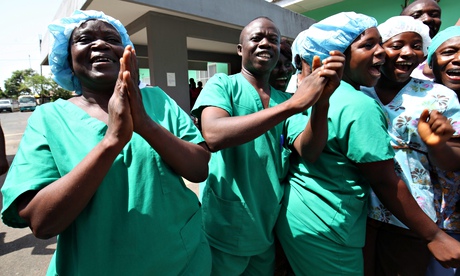
Being an author is great for many reasons beyond even the joy of writing books, including all the helpful, thoughtful emails that arrive from readers, even the ones telling you things you wish you’d known while writing the book.
Being asked to speak about the topics of your books is also great, and I do it as often as I can. So this week is a typical week: on Wednesday, a talk on shit and toilets for the Darling Bugs of May conference of the Infection Prevention Society. I said yes as soon as I saw the name of the conference. The following day, a consonant change and a talk on ships for the national conference of the Apostleship of the Sea, a seafarers’ welfare organisation that operates port missions and arranges ship visiting. Seafaring is a lonely life, and the priests, volunteers and nuns of the Apostleship do an amazing job.
I wrote in my book about Father Colum Kelly, the chaplain for the port of Immingham, and I called his work “a ministry of small gestures”, because, when you’ve been at sea for weeks, and a man in a dog-collar arrives and asks you what you need, and it’s a battery, that is a small thing that can do huge good.
I’m an atheist, and I don’t like evangelising, but some of the best and strongest people I’ve met around the world doing real good have been religious or involved with the church. There are two in particular. Sister Barbara Brillant, a Franciscan missionary in Monrovia, stayed through the 14 years of Liberia’s awful civil wars, and then ebola, and is still there. Maggie Barankitse in Burundi, after terrible violence between its three major ethnic groups, Hutus and Tutsis and Twas, set up a shelter called Maison Shalom for all children. In Maison Shalom, there are are no ethnicities: all the children, they will tell you, are Hutsitwa.
Be very afraid
Last week a relative of mine was laid low by a urine infection. She was shivering, shaking and unable to eat. I told her to get antibiotics. I wouldn’t have said it if it had been a cold, or anything except an infection that I knew would be cured only by antibiotics, as it was.
But this will not always be the case, because antibiotic resistance is at an alarming level. A report released today, from the government’s review on antimicrobial resistance, is calling for a $2bn to $3bn global fund that could finance pharmaceutical companies for the development of new antibiotics. Without such a breakthrough, 10 million people a year could die, because antibiotics don’t work any more (already 30,000 people in Europe die every year because of antibiotic resistance).
It’s been 30 years since a new antibiotic was launched, although research teams are finding fascinating potential antibiotics, from soil and from elsewhere. It’s not an antibiotic, but the beneficial bacteria in faecal transplants have an amazing success rate at treating the superbug clostridium difficile, and it’s now available in a pill (called a crapsule, obviously). But pharmaceutical companies are pulling out of antibiotic research because it’s not lucrative enough. I know a few microbiologists through writing about diarrhoea and cholera: they are all far more worried about antibiotic resistance than you would hope a scientist should be. We should be worried too.
Vest practice
As I can’t run for a while, I’m doing displacement activities. I’ve rediscovered the cool, clean pleasure of swimming, even in the public pools I’ve avoided for years. And I support other runners.
On Sunday I spent a few hours with some £3 bells at the Leeds half-marathon, cheering on 40 or so from my own club, Kirkstall Harriers. But not only them: I cheered everyone in a club vest, and everyone with a name on their vest. With 9,000 runners, by the end, my bells and I had done a proper workout.
There was no question of doing things differently: running is tribal, but it’s a broad tribe. I’ve run in many races where marshals and supporters cheer on all club vests equally, just as I did on Sunday. Would football fans do that?

